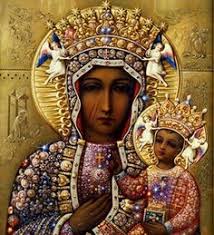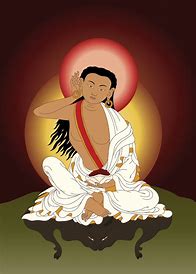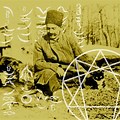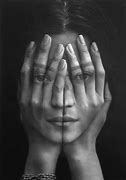After decades of struggle for a place in Israel, dozens of Black Hebrews face threat of deportation










After decades of struggle for a place in Israel, dozens of Black Hebrews face threat of deportation
The African Hebrew Israelites of Jerusalem made their way to Israel from the United States in the 1960s
For two years, Toveet Israel and dozens of other residents of the Village of Peace have lived in fear.
Dimona, a city on the edge of the nation of Israel’s Negev Desert, has been her home for 24 years. Her eight children were born here and know no other country. Now, she and 44 other undocumented members of the African Hebrew Israelites of Jerusalem face deportation.
Receiving the order to leave two years ago was a “moment of disbelief” for Israel, 53. “I feel like the government has been merciless to me and my children,” she said.
The Black Hebrews, as the spiritual community's members are commonly known, first made their way to Israel from the United States in the 1960s. While members do not consider themselves Jewish, they claim an ancestral connection to Israel.
Around 3,000 Black Hebrews live in remote, hardscrabble towns in southern Israel. The Village of Peace, a cluster of low-slung buildings surrounded by vegetable patches and immaculate gardens in Dimona, is the community’s epicenter.
Over the decades, the Black Hebrews have made gradual inroads into Israeli society. After years of bureaucratic wrangling, about 500 members hold Israeli citizenship, and most of the rest have permanent residency.
But about 130 have no formal status and now face deportation. Some don’t have foreign passports and say they have spent their entire adult lives in Israel and have nowhere to go.
The community’s long fight to secure its status shines a light on Israel’s strict immigration policy, which grants people it considers Jewish automatic citizenship but limits entry to others who don’t fall under its definition.
The African Hebrew Israelites are one of a constellation of Black religious groups in the U.S. that emerged in the late 19th and 20th centuries and encompass a wide spectrum of Christian and Jewish-inspired beliefs.
Some fringe Black Hebrew groups in the U.S. hold extremist or antisemitic views, according to civil rights groups ADL and the Southern Poverty Law Center. The community in Dimona does not espouse such beliefs.
Reference: U Tube: The Independent
Articles-Latest
- Koran burning conviction sparks fury as blasphemy law 'returns to UK'
- Robert Francis Prevost - Pope Leo XIV
- Pope Francis' death follows recent health challenges. Here's what we know about how he died.
- Easter April 2025 - international Celebrations
- The Rule of the twelve psalms -Worthy is the Lamb
- Religion in Africa Before Christianity and Islam
- 6 The Origin of Yahweh
- Dumo Di Milano
- What Did the Crow Tribe Believe In: Discover The Beliefs!
- 7 Reasons Historic Christianity Rejects the Book of Enoch
- 8 Breathtaking Mountain Monasteries Around the World
- Ethiopian Bible is oldest and most complete on earth
- Muhammad Muhammad was a prophet and founder of Islam.
- World Day of the Poor – SVP Christmas Campaign 2024
- Pope Francis to open 5 sacred portals on Christmas Eve — for a ritual that’s never been done before
- The 144,000 in Revelation
- Over 73 dead bodies 'used for meditation', 600 crocs in a pond, found in two Thai temples
- Occultism: Western Occult Tradition
- What is a Mudra
- Blood Sacrifices: Ancient Rituals of Life and Death
Articles-Most Read
- Home
- Let There Be Light
- Plants that feel and Speak
- The Singing Forest
- The Singing Forest-2
- Introduction
- Meditation
- Using Essential Oils for Spiritual Connection
- Heaven Scent
- Plants that Feel and Speak-2
- Purification
- Making the Spiritual Connection
- Anointing
- Essential Oils: The unseen Energies
- The Sanctity of Plants
- The Aroma Of Worship-Foreward
- The Aroma Of Worship - Introduction
- Methods Of Use
- Spiritual Blending
- Handling and Storage







